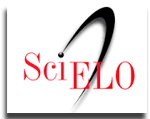La formación del maestro de la educación infantil después del triunfo de la Revolución Cubana
Resumen
La formación del magisterio de educación infantil en Cuba ha transitado por diversas etapas tras el triunfo revolucionario de 1959, que expresan el devenir del Sistema Nacional de Educación y el valor asignado a la formación del maestro , ya sea por vía regular o emergente, media o superior, variantes que han subsistido durante todo el período revolucionario. La etapa actual de desarrollo de la educación se inicia en Cuba en el período entre 2009 y 2010 en que, se iniciaron importantes transformaciones en el Sistema Nacional de Educación, acorde con la nueva realidad social, cuyo rasgo distintivo lo constituye la (re)apertura de las escuelas pedagógicas con la misión de “formar a las educadoras prescolares, los maestros de primaria y de especial”, necesarios para cubrir las crecientes exigencias en estos niveles educativos. El presente artículo tiene como propósito revelar la evolución de la formación del maestro de la educación infantil construida teóricamente, como parte del proyecto de investigación” la evaluación pedagógica social de la formación media superior y universitaria del maestro de la educación infantil” que se desarrolla en la facultad de referencia.
Palabras clave: formación de maestro, educación infantil.
Teacher training in child education after the triumph of the Cuban RevolutionABSTRACT
The formation of the teaching of infantile education in Cuba has travelled for diverse stages after the revolutionary triumph of 1959, that express the happen of the national system of education and the value assigned to the formation of the teacher, either for regular or emergent path, intercedes or superior, variant that have subsisted during the whole revolutionary period. The current stage of development of the education it is initiated in Cuba in the period between 2009 and 2010 in which, started important transformations in the national system of education, agreed with the new social reality, whose distinctive flourish constitutes it the re opening of the pedagogic schools with the “mission of forming pre-school, primary and special education teachers, necessary to cover the growing exigencies in these educational levels. The present article has as purpose to reveals the evolution of the formation of the teacher of the infantile education built theoretically, as part of the project of investigation” the pedagogic social evaluation of the formation intercedes superior and university of the teacher of the infantile” education that it develops in the faculty of reference.
Keywords: teacher training, early childhood education
Recibido: octubre 2015
Aprobado: febrero 2016









